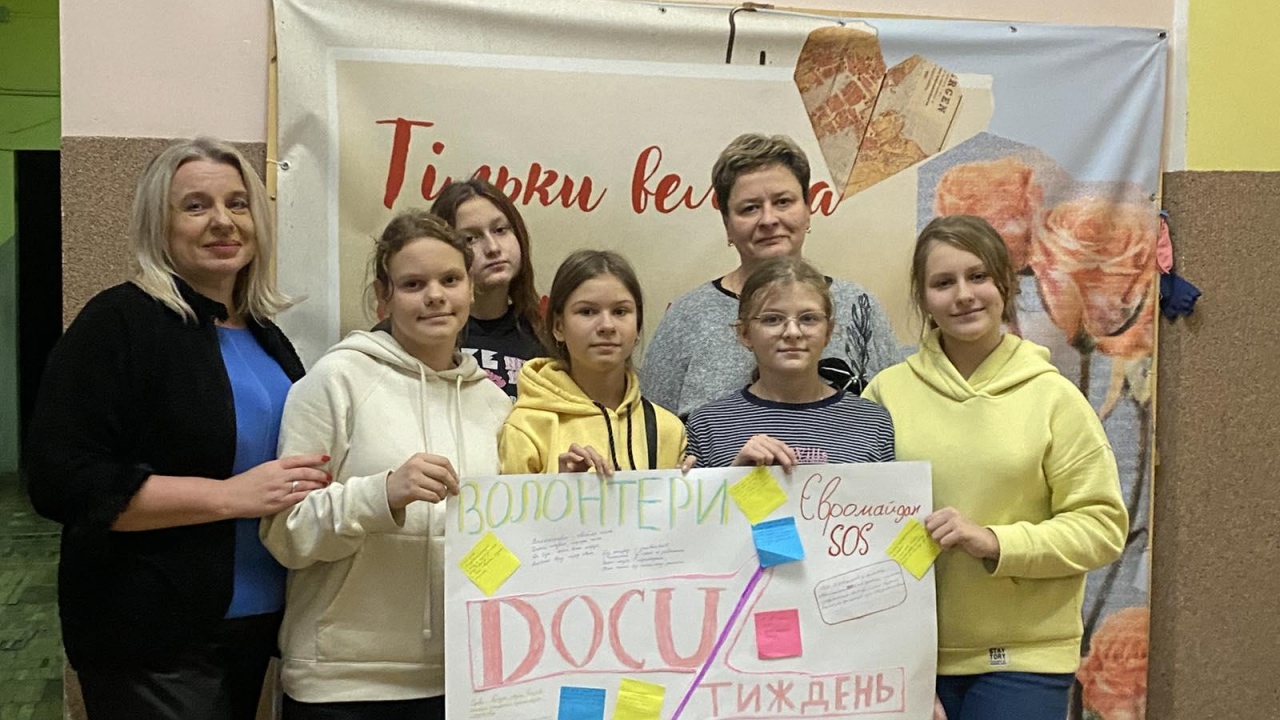In addition, the DOCU/CLUB Network, an initiative by the NGO Docudays, organized screenings of these documentaries in cinemas of Lviv, Zhytomyr, and Kyiv. This allowed students to experience the films on the big screen and engage in discussions with the directors or the protagonists after the screenings. Thus, documentary films became more accessible to students, prompting some to reflect on socially significant topics. After the screenings, teachers facilitated discussions on various issues, including the nature of volunteering and the importance of respecting human rights, which are the key themes of this year's DOCU/WEEK. Below, we present the impressions of schoolchildren, teachers, directors, and protagonists involved in the School DOCU/WEEK. Documentaries inspire schoolchildren to explore socially important topics Marichka Dubina, an 11th-grade student from the School №55 in Lviv, watched Tales of a Toy Horse by Ulyana Osovska and Denys Strashnyi with her classmates. She said that she had never seen a film like this before. Initially, she believed documentaries were solely created to tell serious stories about life, especially about the war. However, after watching the film, her perspective changed. She realized that documentaries could be kind and light, effectively conveying important messages to the audience. “It was interesting to talk with the film's directors and ask them questions that concerned me,” says Marichka. “It was also fascinating to hear the story behind the film's creation: how the directors met the main character Anatoliy, what the filming process was like, and how films are made in general.” [Tales of a Toy Horse tells the story of Anatoliy Lyutyuk, a former anti-Soviet activist who is now an artist and monk. Before the outbreak of the Russian-Ukrainian war in 2014, he lived in an old stone tower in Tallinn. Following Russia's attack on Ukraine, he left the Estonian capital to embark on a volunteer mission to frontline towns and villages in Ukraine.] Anatoliy Lyutyuk, the main character of Tales of a Toy Horse. Source: Docudays UA Pupils of the Specialized School № 52 in Kyiv participated in the DOCU/WEEK for the first time and even became the protagonists of a new promotional video, which is being produced by the DOCU/CLUB Network. In addition to watching the three films in the DOCU/WEEK program, the students additionally watched the film Liturgy of Anti-Tank Obstacles by Dmytro Sukholytkyi-Sobchuk, and the process of its screening was filmed by Kateryna Hornostai. Among the films, Liturgy of Anti-Tank Obstacles left a lasting impression on Danyil Sharafetdinov, a 10th-grade student at School №52. He noted that, while the film addresses a seemingly simple topic, it is deeply intertwined with current events in Ukraine. The film made him realize that despite the challenging times, people still maintain their faith in goodness and support one another. Anastasiya Kotlyarevska, another tenth-grader at School №52, was particularly impressed by Euromaidan SOS by Serhiy Lysenko. The film recounts the initiative of young human rights defenders and activists who united on November 30, 2013, following the violent dispersal of students on Euromaidan. Today, the NGO “Euromaidan SOS” monitors war crimes, engages in international advocacy, and fights for the release of political prisoners. Anastasiya found this documentary to be profoundly moving, evoking strong emotions in its viewers. According to the students, they appreciated the new format of watching a film followed by a discussion on important topics. They expressed a desire to organize film clubs at school at least once a month. Tenth-graders from School №52 had an opportunity to watch films in addition to the DOCU/WEEK programme. Photo by Nataliya Kubalska Students at one of Kyiv's alternative schools think the same way. Ninth-graders Dasha Aksenova and Kristina Potabenko said that they had previously watched various films, including short films, at a special lesson called Project. But documentaries were a discovery for the students. According to the girls, after watching the films, they actively discussed what they had seen with their classmates during breaks and at the extracurricular event “Tereveni” (“Babble”). Kristina became more interested in the topic of the Euromaidan and began to read additional literature about these events, because for children, this is already a page of our history. The films screened at DOCU/WEEK inspired the students of the alternative school so much that they decided to create a school book about the students in the format of a documentary story. In response to this enthusiasm, the school administration launched a Docudays UA film club. Nataliya Harasym, teacher at School No. 55 in Lviv, brought her 10th and 11th grade students to watch Tales of a Toy Horse on the big screen, followed by a discussion with the directors, Denys Strashnyi and Ulyana Osovska. According to Nataliya, the film addressed issues relevant to the students, including volunteering, an activity many of them are often involved in. “It's not the first time we've participated in DOCU/WEEK, so the students are familiar with documentaries,” says Nataliya Harasym. “The children were enthusiastic about talking to the directors and taking pictures with them. This shows their interest in the topic and their positive impressions of the film. One girl even described it as a very warm movie, which also means a lot.” Ulyana Osovska and Denys Strashnyi at the discussion with schoolchildren after the screening of Tales from a Toy Horse. As we mentioned above, the students and teachers of the Specialized School № 52 in Kyiv joined the School DOCU/WEEK for the first time. Nataliya Kubalska, chemistry and biology teacher, learned about the initiative through social media. She decided that she would try to implement the new format in her school. “Children remember and understand better what they have seen with their own eyes rather than what they have merely heard,” says Nataliya. “One of the films was about language, and I thought this could be a great reason for students to speak only Ukrainian. I wanted to reach out to them and show that together, we can change the history of Ukraine. If each of us makes even a small effort, it will certainly yield results in the future.” Two other educators from the School №52 also participated in the DOCU/WEEK. One of them, Olha Yakhno, teacher of Ukrainian language and literature, helped organize film screenings for students in grades 6 and 10. “We didn't fully understand how everything would work because we had no prior experience with the DOCU/WEEK,” says Olha. “Additionally, our school alternates between in-presence and remote learning each week, so we had to adapt all events to our learning format.” Another challenge for the three educators was their lack of experience in discussing documentaries with students. They were accustomed to working with texts in subjects like biology or literature. However, the DOCU/CLUB Network of the NGO Docudays provides several discussion scenarios for each film, offering teachers ready-made tips and instructions. In addition, teachers of the School №52 watched the films themselves before showing and discussing them with the children to avoid trigger topics or to prepare for possible provocative questions. “Thanks to our participation in the project, we were able to show children that school is not just a curriculum mandated by the Ministry of Education and Science, nor is it limited to textbooks alone,” says Olha Yakhno. “It also includes activities aimed at their comprehensive development. In fact, we can discuss a wide range of topics at school, and teachers are open to such conversations.” Sixth-graders of the Specialized School № 52 watched the film Language by Serhiy Lysenko. Photo by Nataliya Kubalska. Documentaries helped children view certain topics from a different perspective. Olha Yakhno recalls that, before watching the film Language, her students said they wanted to “see real volunteers,” even though they themselves weave nets and make amulets for the Ukrainian army. That is, they did not identify themselves with volunteering. “For the children, the DOCU/WEEK format was somewhat unusual. They didn’t immediately integrate all the information presented in the films into something coherent. However, once the discussion began, I was surprised at how deeply the students expressed their thoughts,” says Nataliya Kubalska. “The documentary genre is familiar to them, though. I incorporate documentary videos about scientific discoveries, such as how scientists discovered DNA, into biology lessons when we study genetics. These videos are provided by our school’s partners from Utah, USA. Thanks to these videos, students understand the material much better and are left with a much more lasting impression than if they read about it in a textbook.” Nataliya emphasizes the importance of schools trying new approaches and engaging in informal activities because modern students require diverse methods of learning. According to the educator, a school should educate children to be stronger than our eastern neighbors. Therefore, teachers must make every effort to ensure that students develop and become competent and competitive. Children from the alternative school in Kyiv during a human rights discussion. Phhoto by Valentyna Merzhyievska. According to Valentyna Merzhyievska, headmistress of an alternative school in Kyiv, documentaries are a bridge that connects the school with the outside world. In addition, such projects and meetings give students a sense of importance because adults communicate with them on an equal footing and discuss serious topics. For example, sixth-graders at the alternative school watched the film Language by Serhiy Lysenko and discussed the importance of the Ukrainian language in communication. Older students watched the films Euromaidan SOS by Serhiy Lysenko and Tales of a Toy Horse by Ulyana Osovska and Denys Strashnyi and discussed the importance of human rights: for example, whether medical needs can be more important than freedom of assembly. In the end, they agreed that all human rights are equally valuable. “My participation in the DOCU/WEEK convinced me that children can engage in serious conversations, regardless of their age. I would like schools to find opportunities not only to watch films but also to discuss them in depth. Children have a keen sense of justice, are sensitive to socially important topics, and can notice details that adults might overlook,” adds Valentyna. “Children enjoy discussing profound topics as it prompts them to reflect and think deeply. The best feedback from our participation in the project is that we joined the DOCU/CLUB Network. This will allow us to select documentaries that resonate most with teenagers.” During the School DOCU/WEEK, students were able to watch the film Language by Serhiy Lysenko both at schools and in cinemas. For instance, students were invited to a free offline screening of the documentary at the Kyiv Palace of Children and Youth. The screening was followed by a meeting with the film's protagonist, Anastasiya Rozlutska, founder of the Free Ukrainian Language Courses and the “E-Mova” educational platform. The film Language tells about the initiative that Anastasiya and other volunteers launched in 2013. The initiative offered free Ukrainian language courses to residents of the east of Ukraine. These classes were initially organized in Donetsk, Luhansk, and Symferopol, and after the onset of the Russian-Ukrainian war, the courses “moved” to the frontline cities. Reflecting on the initiative, Anastasiya says that she only recently realized that the courses have been running for ten years, making them a part of history in the eyes of most students. Back then, Ukrainian language courses were an impetus for Russian-speaking Ukrainians to learn the state language. But none of the project initiators realized how important it would be in the long term. “It's great that documentary films are being promoted, and that students are primarily involved,” says Anastasiya. “It gives them the opportunity to realize that even one person can be a lone warrior and that they shouldn't be afraid to be a white crow, because there are other white crows who will join them. I think there should be more such meetings. Students need to know more about the history of recent years, especially the Revolution of Dignity, because it is about self-sacrifice, struggle, and freedom. Children need to understand the value of language and culture, which is fundamental for us. We just need to find the suitable formats for children.” Students of the Specialized School № 52 in Kyiv watched the film Language by Serhiy Lysenko at the Kyiv Palace of Children and Youth. Photo by Nataliya Kubalska The directors of the documentary film Tales of a Toy Horse were equally impressed by the sincerity and wisdom of the teenagers. Director Ulyana Osovska admits that the film was conceived as a family movie and aimed to address the question of what even one person can do in difficult times. Initially, it seemed like a crazy idea, but thanks to the collaboration with the Docudays film festival, which provided venues for screenings, the film reached its audience exactly as the directors intended. Today, it is popular among parents, teachers, and children, telling them the story of volunteering during the Russian-Ukrainian war. “Teenagers turned out to be very open and unafraid to speak to a large audience when asking questions during our interactions. They did not hesitate to share their impressions, emotions, and thoughts. For instance, during a screening in Ternopil, one student not only asked a question but also talked about the importance of knowing Ukrainian history and culture,” Ulyana Osovska noted in an interview with the DOCU/CLUB Network. “We did not expect so many children to attend the screenings. In Lviv, over 700 students came to watch the film,” continued director Denys Strashnyi. “And the question-and-answer session lasted longer than the film itself [children kept the directors for an additional hour and a half - ed.]” The top questions from students to the directors concerned why they chose this profession, how they came up with the idea to make a film about Anatoliy (the main character of Tales of a Toy Horse), and whether they keep in touch with him. Naturally, children were also curious about how much the directors earn. According to Denys Strashnyi, interacting with teenagers always brings a great deal of satisfaction. It also convinces the directors that their work and efforts are not in vain: documentary films resonate deeply and address issues that are important to children and youth. Author: Inna Lykhovyd, New Ukrainian School Title photo: Docudays.UA This publication was prepared with the financial support from the German Marshall Fund of the United States of America. Its contents are the sole responsibility of the NGO Docudays and the New Ukrainian School and do not necessarily reflect the views of the German Marshall Fund of the United States.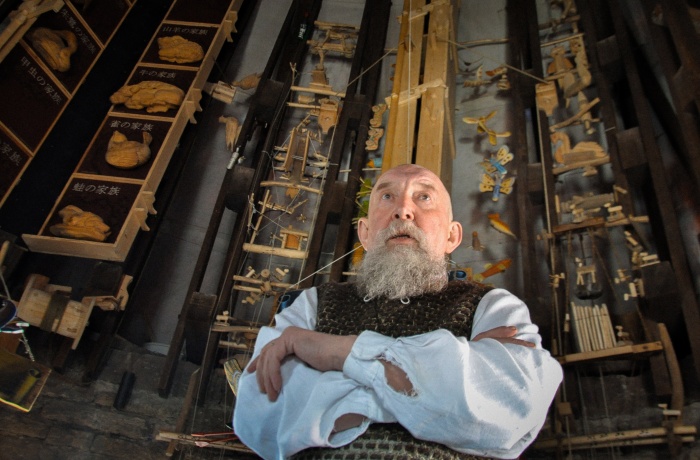
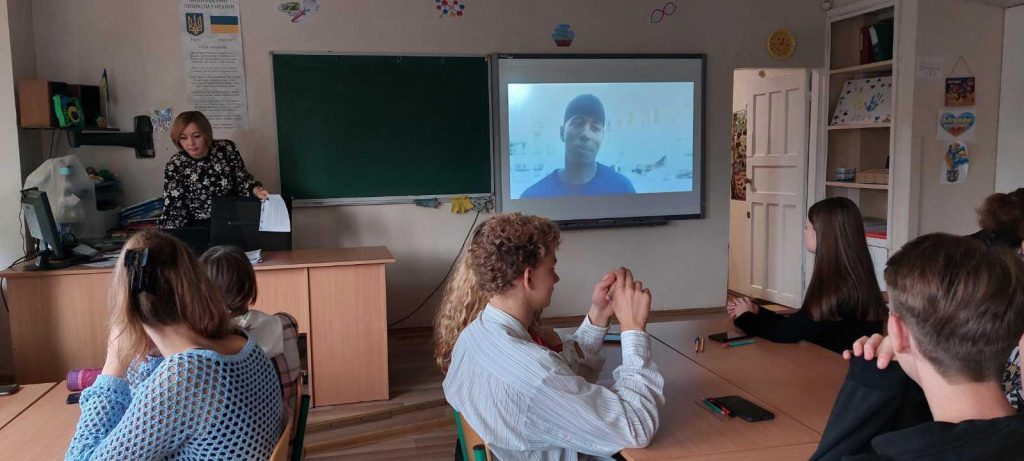
Serious topics should and ought to be discussed with schoolchildren
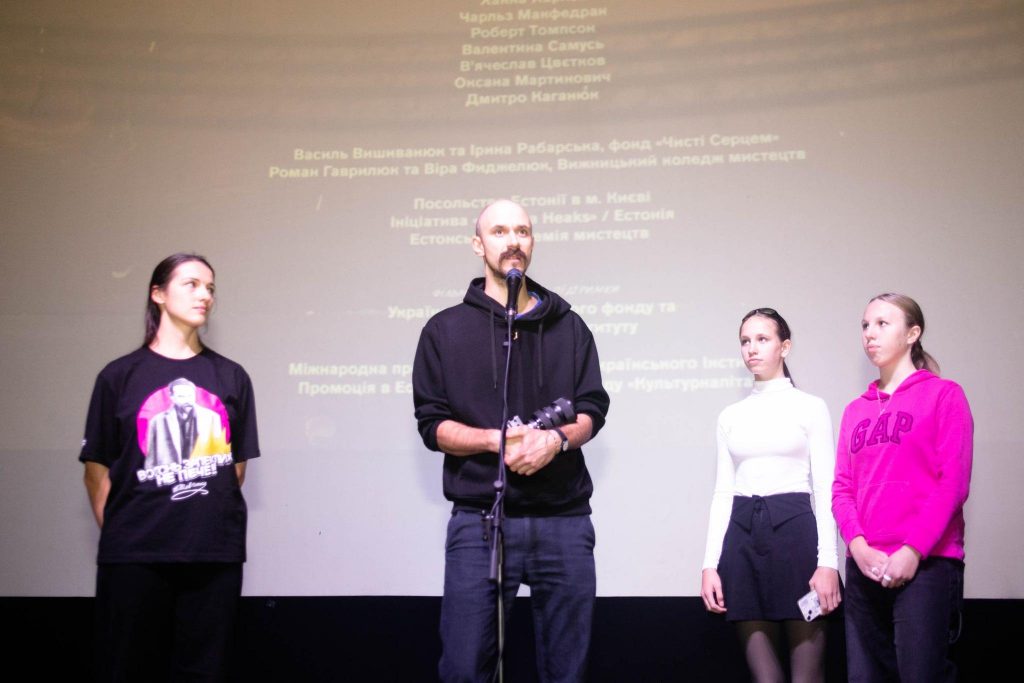
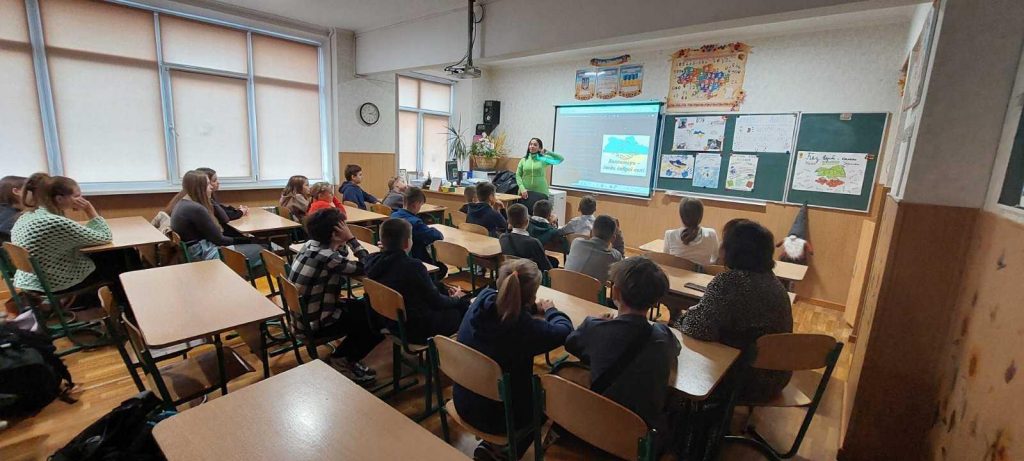
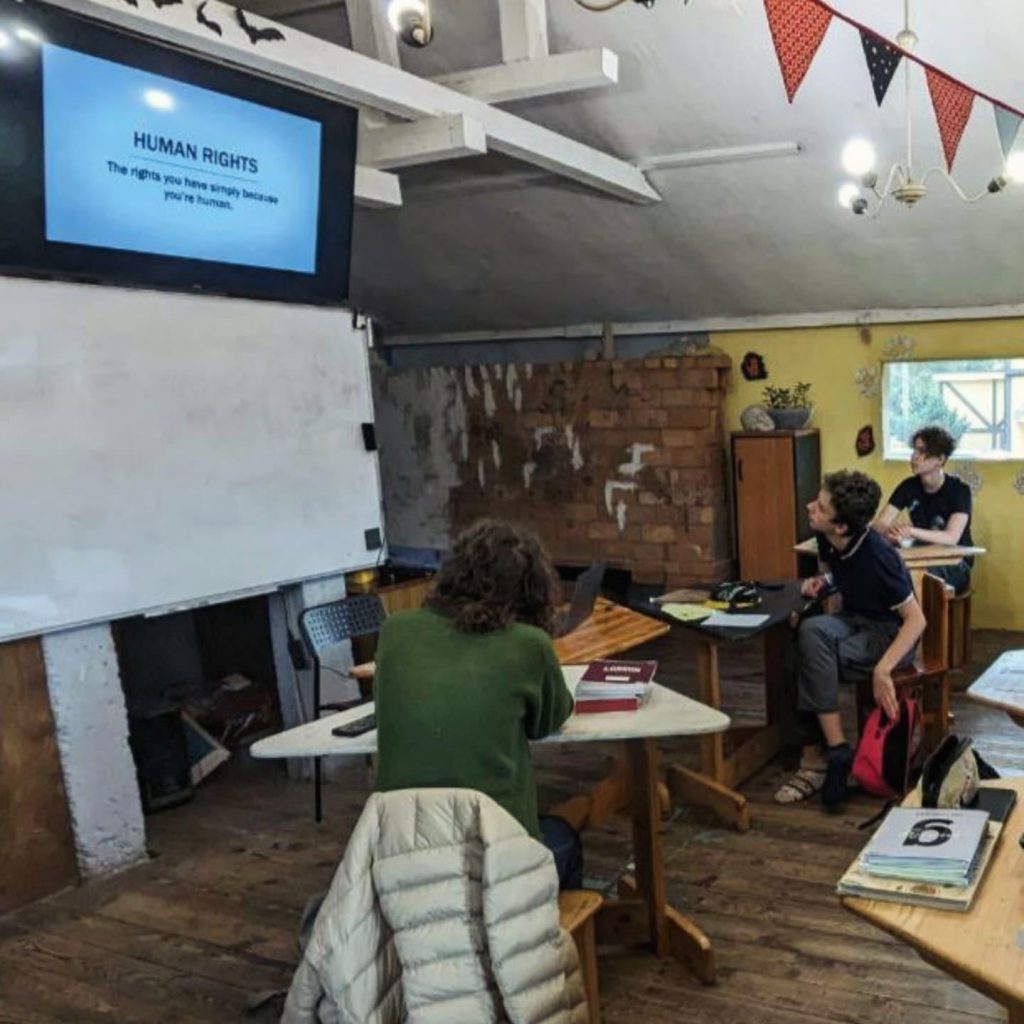
HOW CONVERSATIONS WITH SCHOOLCHILDREN INSPIRES DIRECTORS AND PROTAGONISTS
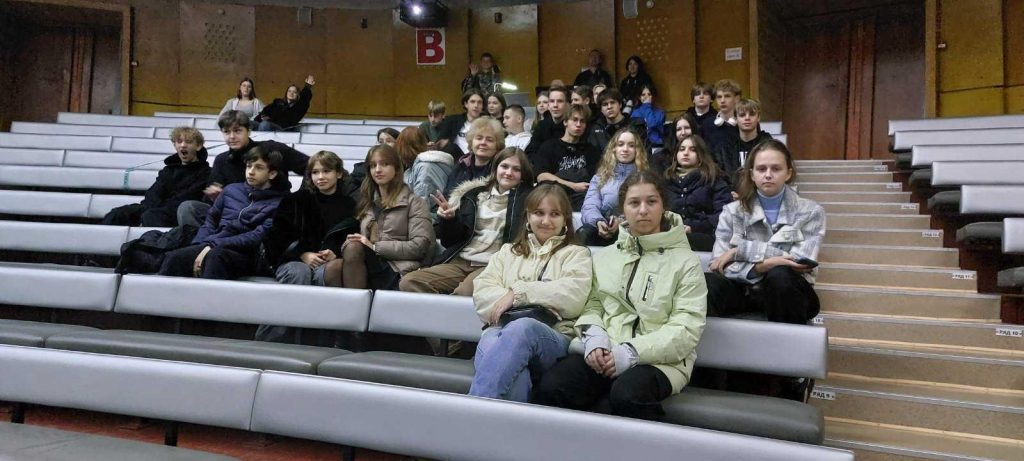
Warm impressions of documentary cinema: reflections from students, teachers, and filmmakers on the School DOCU/WEEK
16 December 2024This year, 549 schools from various regions of Ukraine participated in the School DOCU/WEEK. In each educational institution, students from grades 5 to 11 viewed the documentaries Language and Euromaidan by Serhiy Lysenko, as well as Tales of a Toy Horse by Ulyana Osovska and Denys Strashnyi.
